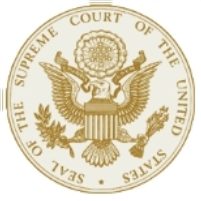Could the Supreme Court Healthcare Decision Be Used to Weaken Clean Air Rules?
Tuesday, July 31, 2012

The U.S. Supreme Court’s landmark ruling on the healthcare law could be used to challenge federal environmental efforts, according to one legal scholar.
Jonathan Adler of Case Western University recently wrote that the court’s striking down of the Patient Protection and Affordable Care Act’s Medicaid provision could be applied to challenges of the Clean Air Act and other environmental laws.
Justices objected to Congress’ attempt to get states to expand Medicaid eligibility by threatening to cut off federal funding. This same tactic is used all the time by Washington, especially to get states to meet Clean Air Act standards.
“The [healthcare law] ruling matters for environmental law because conditional spending is a staple of modern environmental law,” Adler wrote.
Known as “cooperative federalism,” this model encourages states to implement federal environmental programs “through, among other things, the promise of federal financial support and, in some cases, the threat to withhold money for other programs.”
Since the government cannot withhold money to enforce the Medicaid expansion provision, Adler posits, why should it be allowed to do the same thing to impose Clean Air Act rules?.
-Noel Brinkerhoff
To Learn More:
Could the Health Care Decision Hobble the Clean Air Act? (by Jonathan H. Adler, The Percolator)
How the Supreme Court’s Health Care Ruling Could Weaken the Clean Air Act (by Brad Plumer, Washington Post)
Highway Fund Sanctions for Clean Air Act Violations (by James E. McCarthy, Congressional Research Service)
- Top Stories
- Unusual News
- Where is the Money Going?
- Controversies
- U.S. and the World
- Appointments and Resignations
- Latest News
- Bashar al-Assad—The Fall of a Rabid AntiSemite
- Trump Announces He Will Switch Support from Russia to Ukraine
- Americans are Unhappy with the Direction of the Country…What’s New?
- Can Biden Murder Trump and Get Away With it?
- Electoral Advice for the Democratic and Republican Parties






Comments